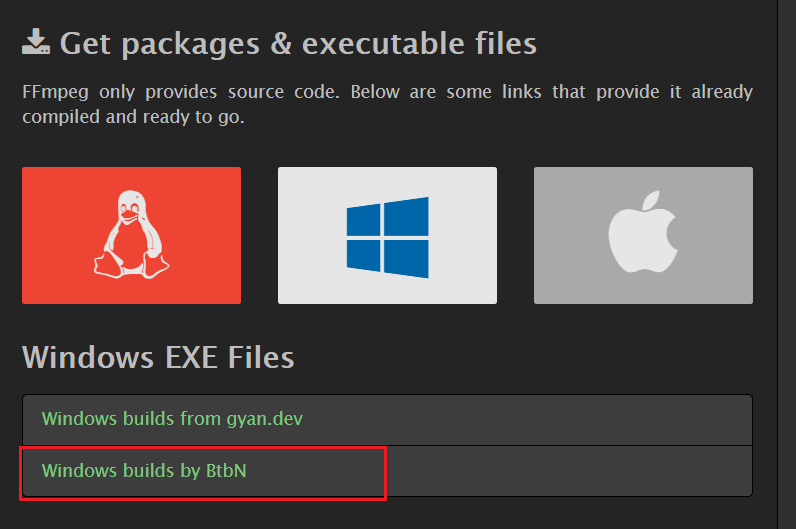
How to Install FFmpeg in Windows 10?Īs FFmpeg is targeted towards advanced users, the installation process can be a bit complicated for some users. Go through the following installation guide to know how you can install FFmpeg on Windows 10. The only downside of FFmpeg is there is no GUI tool and you have to perform some simple steps to get FFmpeg working on Windows 10. Also the commands are same across any host platform on which you are using. And it can perform all of these functions on video, audio and even image files stored in your Windows PC.įFmpeg being command line tool, it offers set of powerful commands that you can run on Windows Command Prompt to perform different operations. It can do things like encoding, decoding, transcoding, multiplexing, de-multiplexing, streaming, filtering, etc. FFmpeg is portable and open software which is used for performing several different multimedia file conversion, audio file splitting or streaming and downloading HLS videos. However, it is important to be cautious when downloading DLL files from the internet, as some sources may provide malicious or outdated files.FFmpeg framework is developed by MPEG Video Codec which is mainly known for its multimedia tools such as FFmpeg tool, FFplay tool, FFprob Tool, etc. Alternatively, you can download the ffmpeg.dll file from a reputable source and place it in the appropriate folder in your system directory. In order to resolve this error, you can try reinstalling the program that is giving you the error, as this may replace the missing ffmpeg.dll file. Try reinstalling the program to fix this problem."

The specific error message may vary depending on the program, but it could say something like "The program can't start because ffmpeg.dll is missing from your computer. If the ffmpeg.dll file is missing, it will result in an error message when you try to run a program that requires this file. This file is commonly used in multimedia applications that require video and audio processing capabilities. ffmpeg.dll is a dynamic link library file that contains functions for video and audio decoding, encoding, transcoding, muxing, demuxing, filtering, and streaming using the FFmpeg libraries. FFmpeg is a free and open-source software project consisting of a large suite of libraries and programs for handling video, audio, and other multimedia files and streams.


 0 kommentar(er)
0 kommentar(er)
